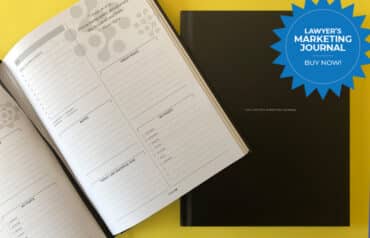When you quote a source in your written work, you use quotation marks to mark the beginning and end of the quotation. If you forget the beginning or end marks, spell-check will flag the omission for you. But speakers often forget to provide the same guideposts in their oral presentations.
How Do I Know When the Quotation Ends?
Here’s what the lawyer said:
In Brown v. Board of Education, the U.S. Supreme Court said- Quote- The doctrine of separate but equal did not make its appearance in this Court until 1896 in the case of Plessy v. Ferguson, involving not education but transportation. So why should this doctrine continue today?
Where did the quotation end? The speaker has not told us whether every word was in the court’s opinion or if some of this speech was the lawyer’s words. With no signal, it’s impossible to know.
Tell your listeners where quoted material ends by saying “end quote” or “close quote.” In the paragraph above, the first sentence was in the Brown opinion; the question was not.
What About Air Quotes?
You know air quotes. That’s when a speaker raises the speaker’s hands into the air, then extends and curls the second and third fingers, as if writing quotation marks on an ethereal document.
If you are giving a speech, and the audience is small enough to see you or you’re on a Jumbotron, air quotes might work. But the court reporter is sure going to have a hard time recording the proceedings if you do this in a deposition or in a hearing. “Let the record reflect that counsel has used air quotes as he mentions the store’s ‘careful precautions’” doesn’t really work.
Quotation or Quote? Getting Grammatical
The act of saying the quoted material is to quote it. “Quote” is a verb. The quoted material is a quotation. “Quotation” is a noun.
As with many other verbs in American usage, there has been a movement of verbs morphing into nouns, “ask” being perhaps the most dreadful example. So speakers often refer to a quotation as simply a quote.
Some dictionaries note the use of “quote” as a noun as an informal usage. Others give in to the trend and simply state that the definition of “quote” as a noun is “quotation.” Correct use of the word “quotation” is the better choice.
“Watch Your Thoughts, They Become Your Words”
This quotation (not “quote”) is part of a famous, longer one attributed to Lao Tzu, a Chinese philosopher who lived more than 2,500 years ago. We can take his admonition to be careful in our speech, including when we are referencing quotations.
When you signal to listeners that you are beginning a verbatim quotation, let them know when it ends, too. And reference quoted words as quotations.
Illustration ©iStockPhoto.com
Subscribe to Attorney at Work
Get really good ideas every day for your law practice: Subscribe to the Daily Dispatch (it’s free).
A New Marketing Journal Designed for Lawyers
Every element of this beautiful guided journal has been designed to both motivate you and keep your marketing efforts on track. From Theda C. Snyder and Attorney at Work, the Lawyer’s Marketing Journal is the perfect place to capture all your great ideas, write down your daily tasks, notes and accomplishments — and monitor your progress. Take control of your marketing and order your journal today.

















